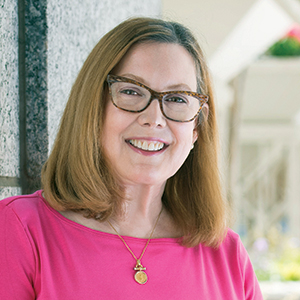
This past summer provided many opportunities to elevate social work, both in the United States and internationally. Your national board participated in the Association Leadership Meeting held in June in Washington, D.C. The meeting represented an opportunity to bring NASW leadership (chapter executive directors, presidents and presidents-elect) together to hear about new initiatives, discuss issues related to NASW operations, and to hear from panels on a range of critical issues—including advocacy for humane immigration policies, insurance reimbursement challenges, and creating model state legislation.
The Advocacy Day held in conjunction with the meeting brought nearly 200 NASW social work leaders to Capitol Hill. Our group made a record number of legislative visits—220 in all. The visits focused on gaining more co-sponsors for both the Workplace Violence Prevention for Healthcare and Social Service Workers Act (S. 851/H.R. 1309) and Improving Access to Mental Health Act (S.782/H.R. 1533). We also called upon legislators to provide greater oversight of the detention facilities on the border.
I appreciated the opportunity to attend a number of appointments with the Illinois delegation, which included chapter Executive Director Joel Rubin, chapter President Grisel Rodriguez-Morales, and national board member Ruth Lipschutz (Region IX). Prepared with data and the ability to share what the impact of proposed legislation would have, our team made compelling presentations to legislators and their aides.
The leadership meeting also included a touching tribute to Dr. Nancy A. Humphreys, a former NASW president, social work and academic leader, and founder of the Nancy A. Humphreys Institute for Political Social Work at the University of Connecticut. It was a proud evening for our profession and a reminder to each of us that in the spirit of Dr. Humphreys, we need to be political social workers.
The annual International Federation of Social Workers executive meeting was held in the IFSW headquarters in Rheinfelden, Switzerland, in early July. NASW’s participation in IFSW helps elevate the profession of social work both internationally and here in the United States and Canada. The three-day meeting is packed, as it is the only face-to-face meeting that IFSW Executive has each year. Each of the five regions (North America, Europe, Africa, Asia Pacific and Latin American Caribbean) made brief verbal reports in addition to written ones that were submitted detailing issues and efforts in our respective regions.
A major topic I addressed as part of the North American Region report was the social work response to the immigration crisis on our southern border. Our international colleagues stand in solidarity with our efforts to bring attention and change to the policies and conditions that currently exist on the U.S. border. Our IFSW North American Region Human Rights Commissioner Mark Lusk provided this contribution to the statement:
Here at the border, we have seen two years of escalation in border enforcement that has included the “zero tolerance” logic of an administration that continues to forcibly separate parents from their children to this day. Indeed, over 13,000 migrant children and youth are incarcerated in detention centers and holding camps. An immediate set of changes need to be implemented to end child separation now, reunite children with their parents or relatives, provide sanctuary for asylum seekers, and create legal pathways for forced migrants and refugees to find safety in Northern America. This should be coupled with large-scale foreign assistance to the Northern Triangle nations of Central America (Guatemala, El Salvador and Honduras) in support of stabilizing living conditions in those countries, creating jobs, and investing in public education. This would ameliorate the conditions that force many to flee.
To galvanize social work’s ability to advocate for more humane immigration policies related to the treatment of children and their families on the southern border, NASW sent an email to its members providing a list of current proposed legislation that would promote humane treatment of child migrants and links to resources social workers can use to stay up to date on the current immigration crisis, as well as other developments related to immigration and social work.
The email included a tool kit that provides resources for social workers who want to work with the media on the issues. Additional links will take members to the listing of NASW’s public statements on the policies and actions that have threatened the welfare of immigrants. I hope all of us are using these tools to the greatest possible extent in shaping more humane policies and conditions.
To close, I would like to offer congratulations to the winners of the 2019 NASW elections, along with a huge thanks to all who stepped up to be slated. Our organization thrives when members take on leadership roles. I am pleased to welcome to the national board Mit Joyner (president-elect), Jose Ramos Jr. (secretary), Victoria Gallagher (BSW student member), Bernadette Seifert (member-at-large), S. Ryan Estes (Region V), Sharon Barber (Region VII), D. Lynn Jackson (Region XI), and Robin Arndt (Region XII).
With congratulations to the new board members comes a fond farewell and thank you to those who completed their terms. Our outgoing board members are Anthony Hill, Heather Bradley-Geary, Marc Andrews, Guadalupe Lara, Larry Watson, Sonya O. Hunte, Abriana Terrell and Marianne Yoshioka.
Thank you all for the time and effort you invest in our organization and our profession. It is good to know that each of you will continue to elevate social work across the country.
Contact Kathryn Wehrmann at: president@socialworkers.org.